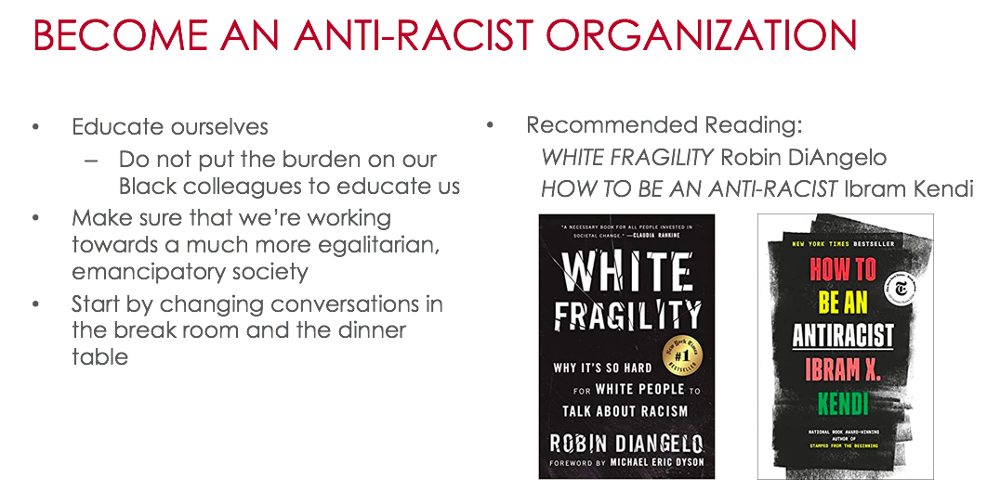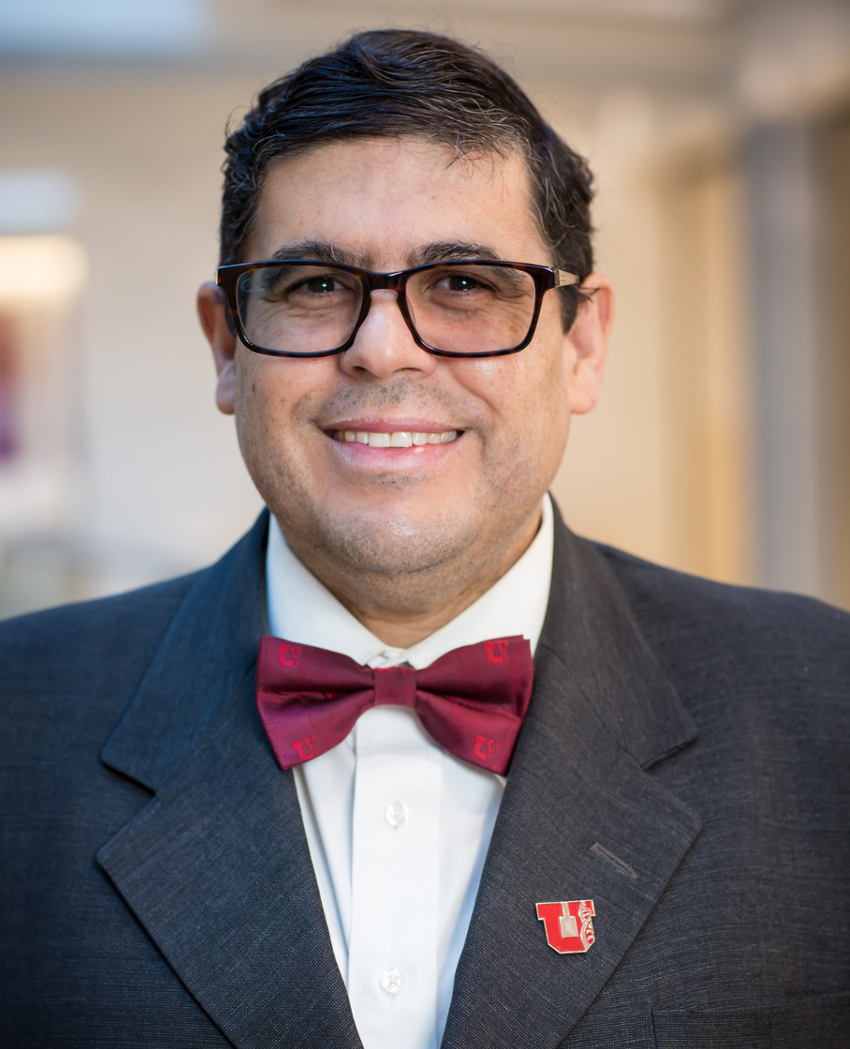Voices of U of U Health
Towards Anti-Racism as a Shared Value
At University of Utah Health, we look at ourselves as part of an excellent institution. But excellence is impossible without equity—and equity is impossible unless we eliminate systemic racism. Most students, staff, and faculty would probably insist: we are not racist.
In his book “How to Be an Anti-Racist,” Ibram Kendi suggests that the only use of the term “non-racist” is to defend our racist actions. While non-racism is not something to aspire to, anti-racism is. An anti-racist institution is one that thoughtfully examines every process of inclusion in the institution (admission, staff hiring, faculty and resident recruitment, etc.) and eliminates any system that appears racist or permits results that could be interpreted as racist.
Anti-racism is not easy, but it is an identity that we must adopt. Our daily behaviors need to mirror our anti-racist aspirations. We can start with the anti-racist declaration:
BLACK LIVES MATTER
Americans have tolerated anti-black violence and racism for centuries. However, in recent weeks there has been a rude awakening, and a majority of Americans are incensed that our society has allowed anti-black violence for so long. It came after the brutal murder of George Floyd by police in Minneapolis, during an arrest for allegedly using a counterfeit $20 bill. Across the country, including in Salt Lake City, tens of thousands of people have swarmed city streets to express sorrow and outrage and to declare:
BLACK LIVES MATTER
The recent, more widespread consciousness of our country’s racial inequity is a call to action. We will no longer accept centuries of anti-black violence and discrimination manifested in the present. Our citizens, my children, friends, and family are in the streets demanding actual change. Change that shows that:
BLACK LIVES MATTER
To be blunt, systemic racism exists in every culture on the earth, in every institution there is or ever was. Even at University of Utah Health. It’s been heartening to see a desire among our campus community—students, staff, faculty, and others—to change. In the offices of Health Equity, Diversity, and Inclusion for the health sciences and the School of Medicine, we get several hundred calls or pieces of email a day from concerned people asking what they can do as individuals and as part of a large, prominent institution to become anti-racist.

Image above published on July 6th, 2020
How do we move towards becoming an anti-racist institution? It starts with culture change. Our Senior Vice President Michael Good, MD, says that culture is shared values exhibited in daily behaviors. So, if anti-racism is a shared value, we need to change our daily behaviors. We can begin with three concrete actions:
The first thing is to honor and validate the pain we are feeling over the anti-black violence that’s still tolerated by our society. It’s just as we honor pain in our friends when they lose a loved one. For many of our black families, colleagues, friends, and neighbors, that is exactly what is happening. Our black community is losing loved ones to senseless, brutal, state-sanctioned murder. This affects all of us because our black community is a cherished, valued, and important part of us.
The second thing is to show our solidarity with victims. Not only victims of violence but of any sort of racism. Showing solidarity includes daily acts of kindness, meaningful gestures, words, and participation in protests.
Lastly, we need to recognize that displays of solidarity and honoring and validating pain are meaningless without sustained efforts to change our institutions and root out any system that can permit racism. Policies and procedures must be based in equity so that we truly become an anti-racist institution.
BLACK LIVES MATTER
It’s a privilege for many of us at U of U Health to learn about racism intellectually, without the burden of having to experience it. To be an anti-racist organization requires that we as individuals educate ourselves. We cannot put the burden on our black colleagues to educate us. It is not their job.
In her seminal work “White Fragility,” Robin DiAngelo says that racism is taught in our living rooms and at our dinner tables—or, in the case of our campus, in the break rooms and hallways. As we seek a more egalitarian and emancipatory institution, we can start by challenging ourselves to be better at recognizing thoughts and behaviors in ourselves that could be construed as racist. And once we see them, we abandon them.
BLACK LIVES MATTER
And it will not do to say “all lives matter” or “blue lives matter” because those statements are hurtful to a wounded, suffering, marginalized, and indignant black community, and to communities of color. If anything, we must recognize that all lives cannot matter until,
BLACK LIVES MATTER!
Black lives do matter, and here at University of Utah Health, we will earn the right to say it as an institution because we will change our daily behaviors to reflect that anti-racist ideal.
